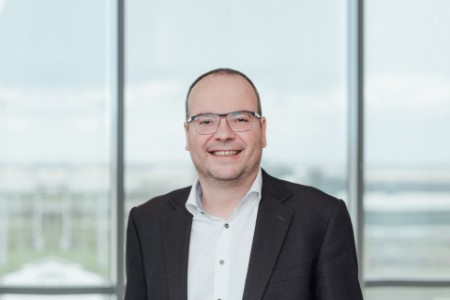According to you, what does a Great Place to Work® mean?
For me, a Great Place to Work is a place where you can give your best and be your best possible self. Your organisation can only be successful when your people are successful. If you can spread that state of mind to everyone, which is very ambitious, then your organisation is excellent and successful, whilst also being a fun place to work.
Does the label of being a Great Place to Work or being a Best Workplace go beyond good employer branding?
We participate in this Great Place to Work-trajectory because we believe it matters. Because we put our people at the heart of the organization. This goes beyond just good employer branding at EY. It might seem cliché, but we don’t do this because of a strategy or just window dressing, but because we believe in it. We are convinced that it matters. You can only succeed at becoming a Great Place to Work when you do things in a sustainable and authentic way. So not just for marketing purposes, but because it makes sense and because it will work in the long run. We can differentiate ourselves with other professional services organizations because we are the organisation that has the biggest heart for its people. And this might not be the first thing people associate with the consultancy sector, but at EY it is the case.
I see our business as a good marriage between business and human needs. This is not easy but necessary. It is complex, like mayonnaise is. Mayonnaise is collectively complex because it has many ingredients and is difficult to make. They go hand in hand, and it works out perfectly when the mayonnaise “takes”.
Can you name one thing where you excel at?
I think that would be being authentic which means doing the things you say and promise. You need to think about how your decisions will influence your employees in every decision you make. In our policy making and implementation, the baseline is therefore always the same: providing trust to our employees. An example is our approach to mobility, where people can opt for the combination of modes of transport that suit them best without making sacrifices. Additionally, EY did not make it mandatory to come back to the office. We politically mediated this by concluding that everyone should approximately work three days at the office and two days from home or at the client’s site. People still have the freedom to discuss it with their management to find a better agreement. This is an example of how we want to make a difference: if you give trust to your employees, then you will also get it back.
Making time for your people is essential. It is no rocket science, but in this VUCA-world, many things change, and the unpredictability is incredibly high. We saw this during COVID, but we, unfortunately, witness this as well with the crisis in Ukraine. Especially in this fast-changing world, it is essential to take some time to recover and reflect. And what we want to do now is let our people-managers know that they need to take time to listen to their people. This might not seem revolutionary, but a plant does not grow harder when you pull it, but when you put it in good soil, water and give it sufficient attention. We are a people centric business. Our baseline is ‘building a better world’, which primarily starts with ourselves.
What is one thing that you learned from last year during the COVID-19 pandemic?
The thing that touched me was to see how resilient our employees were. Living in a world with COVID-19 is not easy. We all need a sense of connection; that was also prominently the case at EY. Our employees showed that they are resilient, which gives highly positive energy. They always try to look at the glass as half full instead of half empty.


